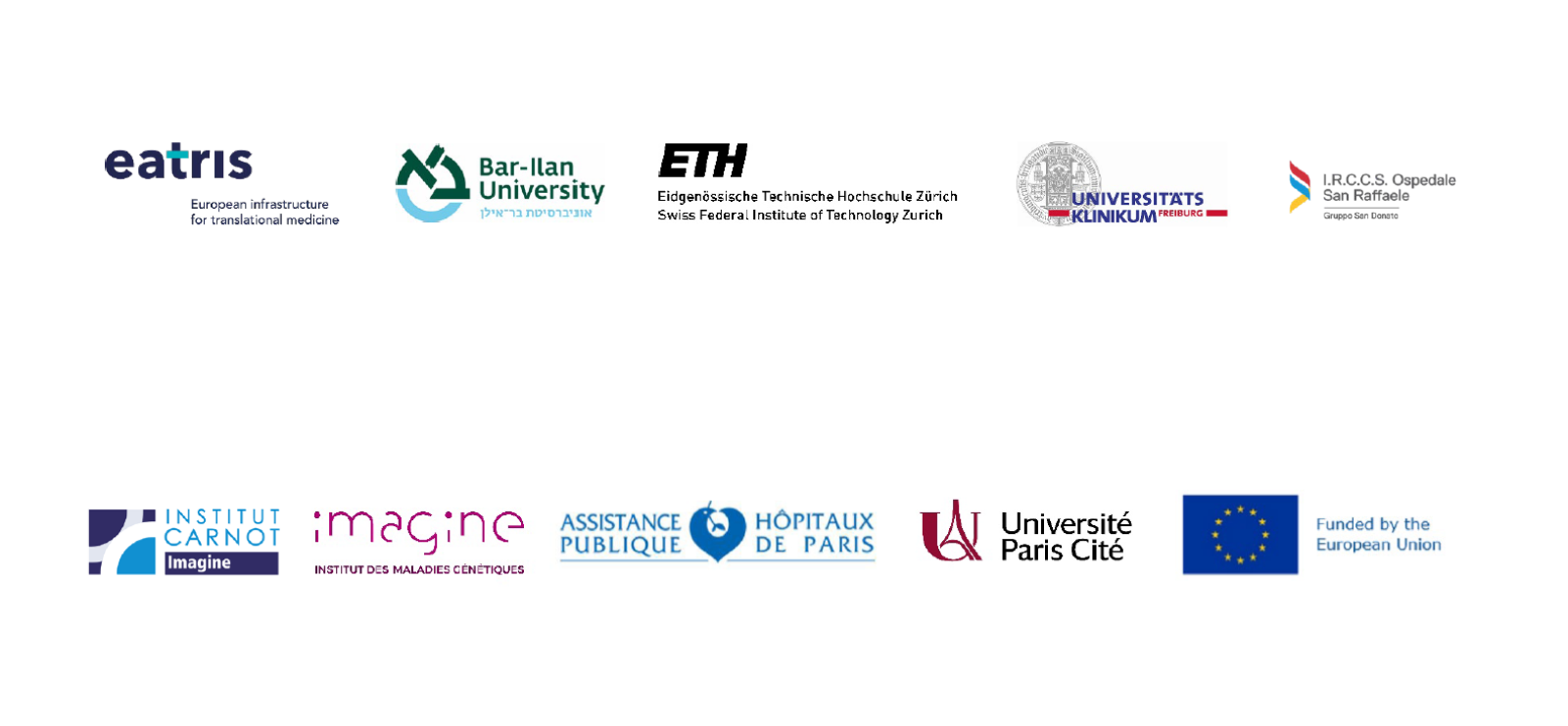EATRIS will lead innovation management activities in a new project funded by Horizon Europe called “EDITSCD: Assessing efficacy and safety of genome EDITing approaches for Sickle Cell Disease”. The project brings together a multidisciplinary team of 8 partners from 7 countries to develop new genome editing approaches to treat sickle cell disease. The project should lay the foundation for an improved gene therapy strategy to treat SCD and provide best practice tools and protocols for genome editing-based therapies.
Innovative approaches to gene therapy for sickle cell disease
Sickle cell disease (SCD) is the most common genetic disorder, with 350,000 new cases diagnosed worldwide each year. It results in severe anaemia, extremely painful crises, increased risk of infections, and progressive loss of organ function. SCD affects haemoglobin, the main component of red blood cells, which carries oxygen in the blood, and is caused by a mutation of the β-globin gene coding one of the key constituent proteins of haemoglobin. The only curative treatments for SCD to date are the transplantation of blood (hematopoietic) stem cells from the bone marrow of a healthy donor (an approach limited by the lack of compatible donors, i.e. less than 30% of cases only), and still experimental, lentivirus-based gene transfer. Other available treatments reduce symptoms and pain but do not target the cause of the disease.
Annarita Miccio’s team and the members of the consortium are developing cutting-edge methodologies in gene therapy for haematological disorders, using site-specific nucleases or base editors. EDITSCD will benefit from this expertise, as innovative CRISPR-Cas9-based approaches will be used specifically for SCD to reactivate the expression of fetal haemoglobin, naturally produced before birth, to compensate for the deficit of functional adult haemoglobin, or to correct the SCD-causing mutation.
Collaborate to assess the efficacy and safety of these approaches
Data from sickle cell disease patients or SCD mouse models suggest that SCD hematopoietic stem cells (HSCs), the target cell population in gene therapy approaches, are characterized by a high mutational burden, oxidative stress and expression of inflammatory genes.
“For this project, we have brought together a multidisciplinary team composed of eight partners from seven countries. Thanks to their expertise and collaboration, we want to better understand the molecular and cellular mechanisms underlying HSC autonomous and non-cell-autonomous dysfunctions in SCD. We also want to evaluate the impact of established and novel genome editing approaches on SCD hematopoietic stem cells’ properties and genome integrity. We hope that this study will lay the foundation for an improved gene therapy strategy to treat SCD and provide best practice tools and protocols for genome editing-based therapies using HSCs. Ultimately addressed to patients, it is important to us to establish within EDITSCD project a dialogue around these novel therapies with patients’ communities. For this, the European Reference Network on Rare Hematological Diseases (ERN-EuroBloodNet) will accompany our consortium in patients-directed actions, and support dissemination activities on these innovative strategies“, explains Annarita Miccio, project coordinator.
Responding to European health and innovation needs
This project is funded by Horizon Europe, the European Union’s key research and innovation program, which aims to increase the visibility of cutting-edge European research and innovation and to attract and mobilize excellent talents. projects should contribute to a more innovative, resilient, competitive and healthy Europe.
“Institut Imagine, together with its partners, is proud of its involvement in this ambitious European program of excellence. Widening collaborations at the European level is one of our priorities. Horizon Europe brings together the key players of technological and therapeutic innovation, from industrial, academic research, and healthcare sectors, to accelerate scientific development, find treatments, and ultimately contribute to better health. Mobilized through multidisciplinary and multi-partner projects, these actors demonstrate the importance of public-private collaborations to collectively contribute, at a European level, to the development of innovative treatments for diseases that represent real public health challenges.“, concludes Prof. Stanislas Lyonnet, Director of Institut Imagine.
The partners are Institut Imagine, Assistance Publique – Hôpitaux de Paris / Greater Paris University Hospitals, Université Paris Cité, Bar-Ilan University, EATRIS, ETH Zurich, University of Freiburg Medical Center and Ospedale San Raffaele SRL.

















